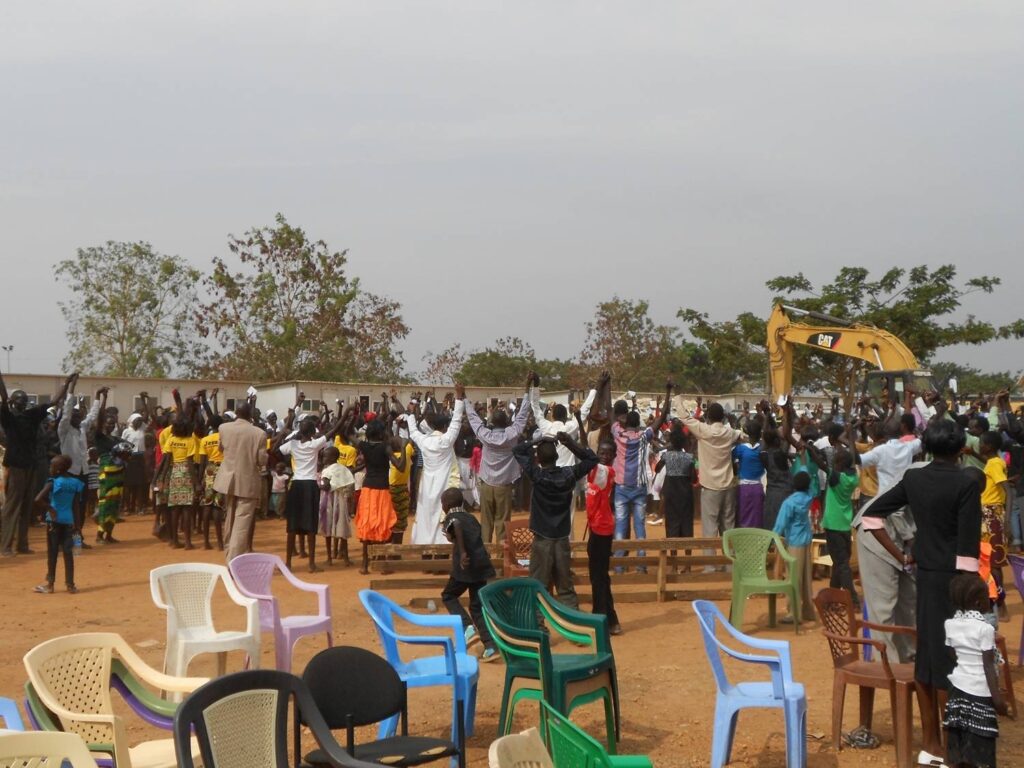Peace and Reconciliation in Ubuntu

Credit: USAID in Africa
Licence: USAID in Africa, Public domain, via Wikimedia Commons
1/1/2014
| Giver: | Community |
|---|---|
| Receiver: | Individual or unstructured/informal group |
| Gift: | Other |
| Approach: | Other |
| Issues: | 10. Reduced Inequalities |
| Included in: | African Philanthropy Narratives |
Ubuntu is an African philosophical concept rooted in the belief that human beings are defined and shaped by social bonds. Foregrounding principles of interdependence and cooperation, ubuntu prioritizes the welfare of the group over the personal gain of the individual. Ubuntu ideals play a particularly vital role in conflict resolution in the societies of Eastern, Central and Southern Africa. As a framework for restorative justice, ubuntu oversees peacemaking efforts through a process of reconciliation and forgiveness, allowing offenders to make amends for past transgressions so they can reclaim their place in the community. By unifying perpetrators and victims around shared values and goals, ubuntu promotes an approach to generosity that emphasizes solidarity, consensus and compassion.
Ubuntu has helped resolve differences within indigenous African communities since the precolonial era. In the Nguni society of Southern Africa, members of a village traditionally bring disputes before a public forum known as an inkundla. These meetings are led by a Council of Elders, who mediate between perpetrators and aggrieved parties. Communal in character, these sessions encourage the participation of the entire village, thereby ensuring that all opinions receive consideration in pursuit of a fair and satisfactory outcome. Since conflict poses a potential threat to the harmony of the community, it is in the collective interest to reconcile differences as peacefully as possible. To avoid recriminations or lingering resentment, elders invite perpetrators to acknowledge and atone for their transgressions, while urging victims to accept and forgive.
This focus on restoring and promoting a sense of togetherness in the wake of conflict has remained relevant in postcolonial Africa. In the aftermath of the Mozambican Civil War (1977-1992), soldiers who had engaged in the fighting – many of them children – participated in a reconciliation process to help them make amends for their violent actions and become reintegrated into society. Following the 1994 genocide in Rwanda, the government established a traditional court of justice known as a gacaca to try the accused. In these proceedings, community members met with perpetrators before a local judge, or inyangamugayo, to analyze the atrocities committed and identify appropriate reparations. Designed to promote healing, these courts illustrated the role indigenous approaches can play in rebuilding social cohesion following mass trauma.
Ubuntu philosophy guided the South African Truth and Reconciliation Commission, which oversaw efforts to repair the nation’s social fabric in the post-apartheid era. In the wake of decades of state-sponsored violence and dispossession, the new majority-led government attempted to heal historical wounds rather than seek revenge. Led by archbishop and political activist Desmond Tutu (1931-2021), the TRC sought to confront the dehumanizing effects of apartheid on all South Africans, and hoped to build a foundation on which the entire nation could move forward and heal. Though the Truth and Reconciliation Commission could not meet its potential in terms of restorative justice, it nonetheless provides important lessons for societies around the world.
Contributors: Maha Tazi, Stephen Meyer
| Source type | Full citation | Link (DOI or URL) |
|---|---|---|
| Book |
Clark, Phil. The Gacaca Courts, Post-Genocide Justice and Reconciliation in Rwanda: Justice Without Lawyers. Cambridge University Press, 2010 |
- |
| Publication |
Christian B. N. Gade “What is Ubuntu? Different Interpretations among South Africans of African Descent” South African Journal of Philosophy. 31 no.3 (2012): 484–503. |
|
| Publication |
Collin Marks, Susan 2000. “Ubuntu, Spirit of Africa: Example for the World, in Watching the Wind: Conflict Resolution during South Africa’s Transition to Democracy”. United States Institute for Peace. |
- |
| Publication |
Murithi, Tim “African Approaches to Building Peace and Social Solidarity” Accord , 2005 |
https://www.accord.org.za/ajcr-issues/african-approaches-to-building-peace-and-social-solidarity/ |
| Publication |
Muwanga-Zake, J.W.F. “Building bridges across knowledge systems: Ubuntu and participative research paradigms in Bantu communities”. Discourse: Studies in the Cultural Politics of Education. 30 no. 4 (2009): 413–426. |
- |